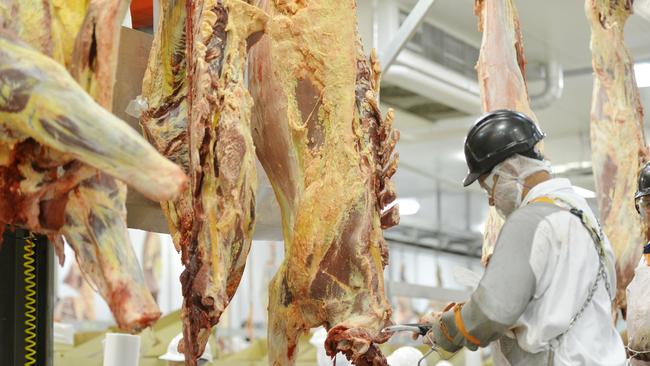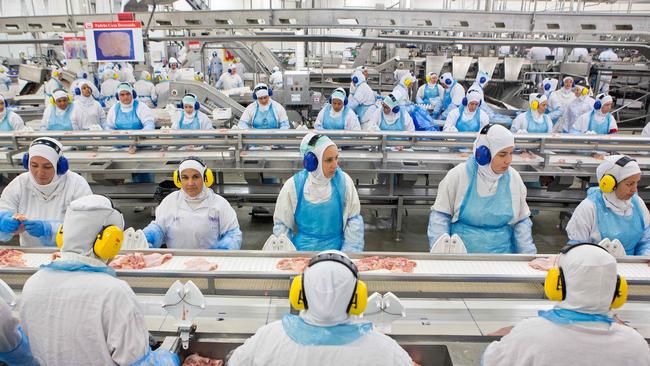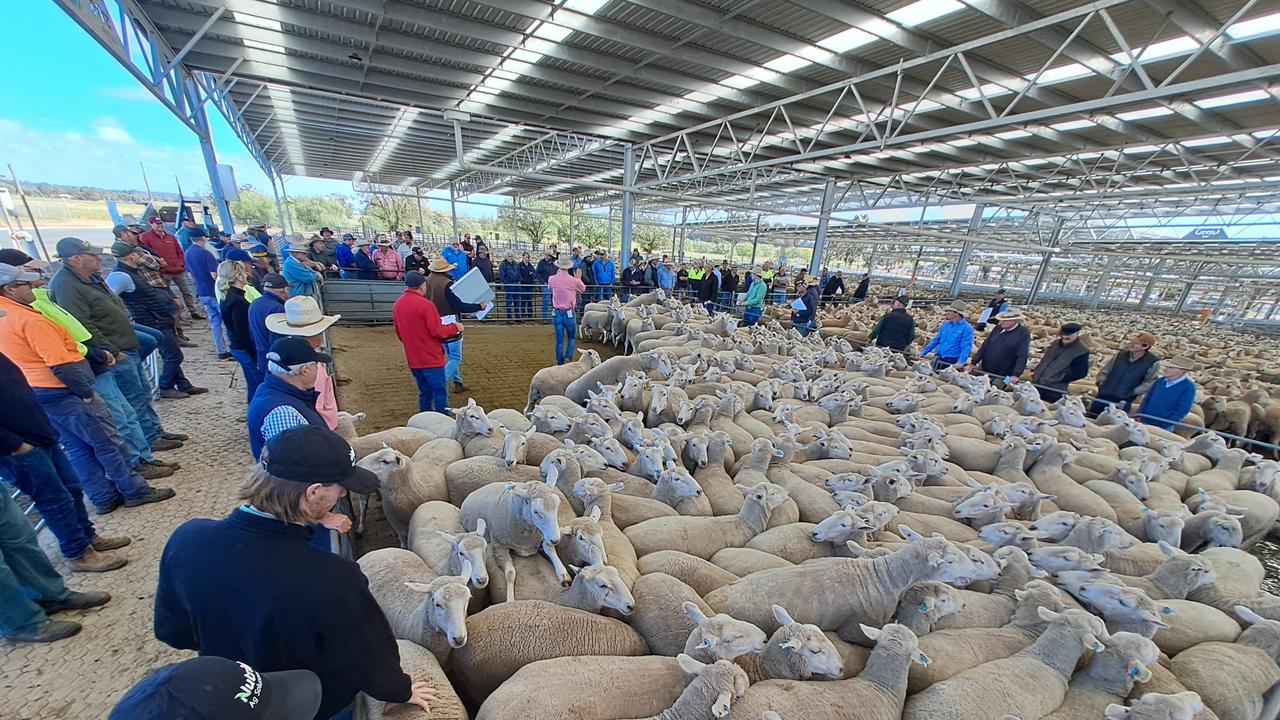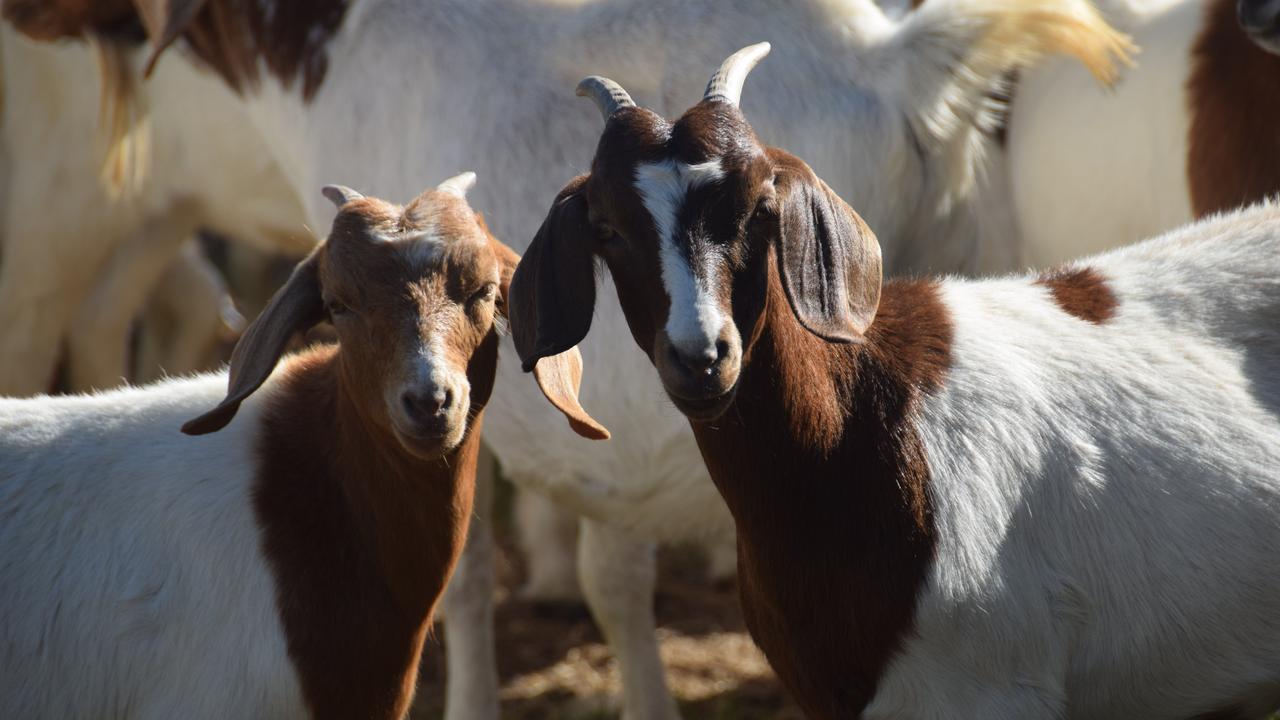Meat union doubts JBS bid: Global meat giant wants to import 1500 Brazilian workers
JBS’s global boss has said the meat processor will bring 1500 Brazilian workers into Australia, but doubts have emerged about the plan.

The Brazilian boss of the world’s largest meat processor, JBS, says he is sending 1500 of his countrymen and women to work in Australia.
But Australia’s meat workers’ union, which opposes the move, says it doubts JBS will be able to import that number of overseas workers.
In a recent LinkedIn post JBS global chief executive Gilberto Tomazoni said the company’s “Sem Fronteiras” without borders scheme, would bring 1500 Brazilians into Australia.
But Australasian Meat Industry Employees Union federal secretary Matt Journeaux said: “We would be against any influx of that magnitude, because local workers have to be given priority.
“It (1500 workers) seems like an enormous number, and I’m not convinced it’s going to happen. I’m speaking with the (federal) government on how this is possible.”
Brazil is not a signatory to the Pacific Australia Labour Mobility scheme and Mr Journeaux said bringing workers in under the Meat Industry Labor Agreement would require JBS to pay workers at least $70,000 a year.
JBS’s website shows it is trying to fill hundreds of positions across Australia, most of which are paid well below the $70,000 temporary skilled migration income threshold.
The meat processing giant has 50 meat processing worker vacancies at its South Australian Port Wakefield facility, which pay $21.41 an hour and another 60 positions at its Bordertown plant that pay $23.72/hr, plus vacant positions at numerous other sites.
Even in promoting its skilled meat worker positions at other plants JBS states a full timer has the “potential to earn up to $54,000 – commensurate with experience & skill levels applied, and more with additional allowances and/or overtime where worked”.
It remains unclear exactly where the 1500 workers would be placed across JBS’s operations, which already employs 15,000 workers across nine meat processing works, six feedlots, pork processing operation (Rivalea, Primo Foods) and Huon Aquaculture.
Brazil’s Istoé newspaper recently reported JBS had 70 employees working outside Brazil through JBS Sem Fronteiras scheme, 53 in Canada, 11 in the United States and six who already work in Australia.

The Weekly Times asked JBS Australia to confirm it was preparing to fill 1500 local positions with Brazilian workers and what visa type it would use to bring them into the country.
But JBS avoided the questions, with a spokeswoman simply stating the company was “committed to employing locally as much as possible, however due to ongoing skills shortages, some roles may need to be sourced through skilled and unskilled international workers.
“All international recruitment is undertaken in line with Australian Government Immigration Policy and meeting relevant visa conditions.”
It appears Mr Tomazoni’s LinkedIn statement may not quite match up with JBS Brazil’s media release from earlier in the week on the issue, which stated “there are 1500 opportunities” to work in Australia.
“There are 1500 opportunities in a range of functions in the production and administration areas at JBS Australia,” the media release read. “The chosen employees are boarding for Australia between April and December this year.”
Cattle Australia chair David Foote welcomed JBS’s move, saying “if it all fits within the rules … good luck to them”, but he was unsure of what visa mechanism was being used.
Mr Foote said there was a labour shortage in the industry, particularly of knife-skilled workers.
He said getting 1500 workers “up and running” meant JBS would be able to respond to the growth in cattle numbers that were coming through, removing processing blockages.
In his LinkedIn statement Mr Tomazoni said the program was a valuable asset of JBS, and would disseminate the Company’s “cultura” in its various businesses abroad, as well as promoting a healthy exchange of knowledge and experiences among employees.
But the company’s culture has been the focus of much attention over the past decade, with Reuters and other international media reporting its parent company J&F Investments pleaded guilty in 2020 to US foreign bribery charges and agreed to pay $US128 million in criminal fines.
Three years prior to that J&F Investments was fined $US1.85 billion after top executives admitted to bribing hundreds of Brazilian politicians.




